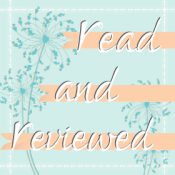
The Adventures of Tom Sawyer by Mark Twain
Post number twenty-nine is for Mark Twain's The Adventures of Tom Sawyer, which was another of the required readings for my History of Children's Literature course. Instead of my usual posting which includes my thoughts mixed with a summary, I'm going to cut and paste my reading response journal for last week. I sort of mention some spoilers, so will put a spoiler space just in case.
S
P
O
I
L
E
R
S
My favorite reading so far in this class has to be The Adventures of Tom Sawyer. There were so many moments in the book that made me laugh out loud, it's almost hard to count them. In particular, I loved the chapter with Tom's "pinch bug" and the dog in the church during sermon time (I couldn't help but imagine my own pastor's response if that commotion were to happen during one of his sermons!), and the part where Tom gave the cat, Peter, some of the Pain-Killer; Aunt Polly's reaction was pretty priceless. The part that resonated with me the most, though, was the bit when Tom is assumed dead, and Aunt Polly tells Mrs. Harper that Tom was a bad boy, just a bit "mischievous". This could sum up a great many of our students here at the school I work in. It's so much easier to class them as "bad" and just be done with it. Tom was good-natured and had a good heart; he was just precocious and tended to let his boredom and large imagination get him into mischief. He also had a bit of trouble reining in his temper, which is the fault of a great many kids I know today. Tom suffers from an inability to think before he speaks at times, too, which is also a chronic problem today.
While reading Ragged Dick, I couldn't help but notice the similarities between Johnny and Huck, especially when Johnny mentions that he left the farm he was on because he didn't like the lack of independent living. This is similar to Huck's leaving the Widow's house, because he said life was coming too easy for him. I wondered which book was written first (Wikipedia to the rescue!), and was surprised that it was actually Ragged Dick. I wonder if Mark Twain had read the book (or the serial) and used the description of Johnny to help him flesh out Huck. Or maybe, he already had the character of Huck plotted out and it was just a coincidence. I wonder if any of my classmates noticed the similarity?
I was familiar with Tom Sawyer, mostly because I'd seen the Disney film, Tom and Huck (http://www.imdb.com/title/tt0112302/), when it was released. I'd also read The Adventures of Huckleberry Finn in high school (it was probably the most enjoyable book of the semester, along with The Great Gatsby), so was introduced literature-wise to Tom in that book (and the craziness the two of them got up to when trying to rescue Jim!). I found it interesting that, at the beginning, we hear Tom say he's sort of jealous of Huck because Huck doesn't have to go to school or do anything he doesn't want to. And yet, at the end of the book, Tom's the one trying to get Huck to go back to the Widow, and even goes so far as to tell him he can't be in his robber gang if he doesn�t. It's almost like he knows it would be best for Huck to go back, but there's also that idea that he doesn't want to be seen with Huck in public when Huck is so uncivilized – in fact, that line where Tom says as much kind of struck me, because he didn't seem to mind talking to Huck in public if it meant being late to school, and yet, he didn't equate that to the same thing as walking down the street together. As much of a hooligan as Tom is – and he's well aware of what he is throughout this book – he considers himself as better than Huck, mostly because he's got a home and is more "cultured", if you will. It was just an interesting dynamic, and was a classic example of peer pressure; you don't want to do anything that will jeopardize what others think of you. Funny how those same ideas are still true today.

















